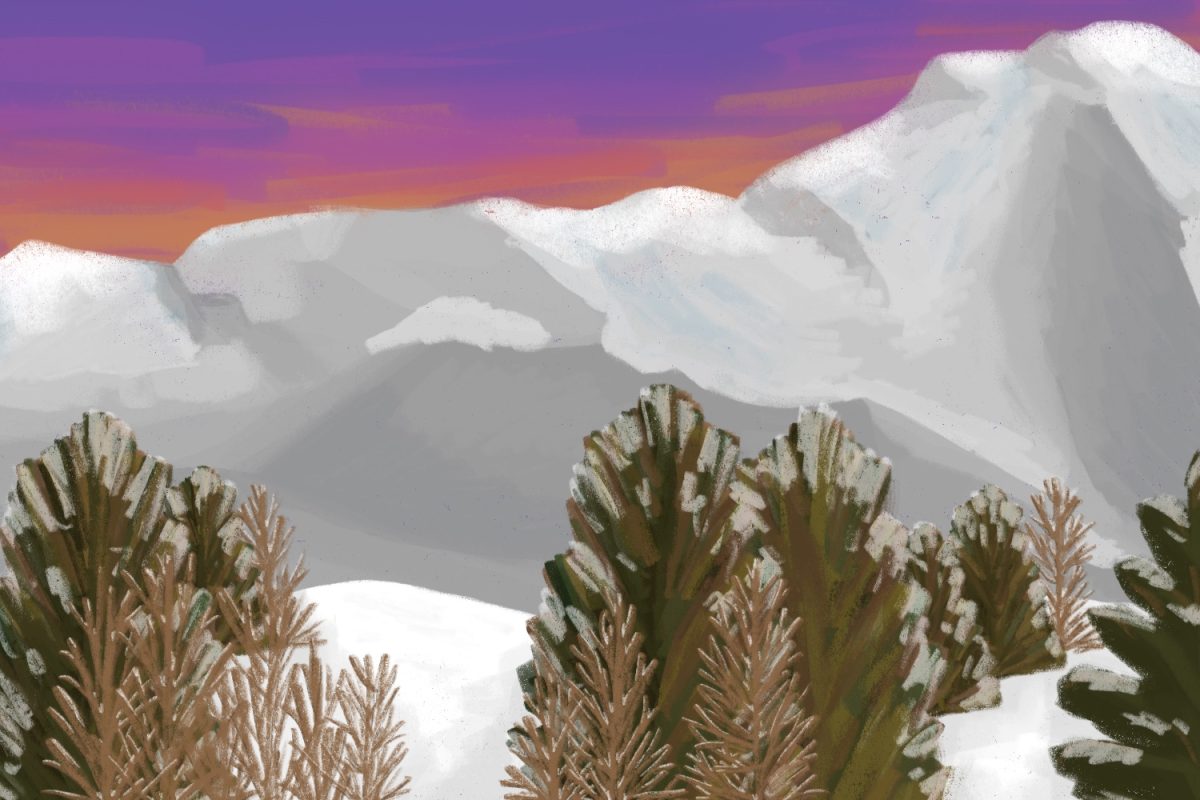This winter, Vermont has seen single-digit temperatures, blustery winds and a blizzard with 16.5 inches of snow.
It may be inconvenient to stack on three layers and a hat when leaving the house, but with a change of mindset, winter can be a time to appreciate the beauty and transformations that the season brings.
When I look east to the Green Mountains in the winter, I see a color palette more beautiful than summer greenery. The sky is a pale blue, the mountains are capped in blinding white snow and the trees are muted with light browns and dark greens.
Looking west down Main Street in the evening, Burlington is silhouetted against a cotton candy sky that eventually drops the sun into Lake Champlain.
Winter sunrises and sunsets are longer and contain more vibrant colors like pink and purple due to low humidity and clearer air, according to a Nov. 22, 2019 Vox article.
Life slows down in the winter: it’s a time of renewal for plants and rest for animals. We can take inspiration from the natural world and change our lifestyles during this season.
Living seasonally is the concept of changing your ways of living based on the rhythms of nature according to a Dec. 24, 2024 article from The Almanac.
This can look like slowing down like the animals do, reflecting or embracing community in a time of less sunlight. It can include eating seasonal fruits and vegetables: for winter, this includes beets, turnips and winter squash.
It’s easy to withdraw when the sun sets so early, but that isn’t necessarily a bad thing. Winter can be a time to embrace solitude and use the season to focus on the self.
Describing winter as “gross” or “gloomy” and just “sludging through it” perpetuates a negativity that can make it even harder to bear. But winter comes every year. It’s always long, it’s always dark, but you can change the way you talk about it.
Multiple studies have found little correlation between depression and the winter season. Therefore, the idea that people are collectively sad in the winter might be a result of negative talk about the season, according to a March 13, 2023 article in the Atlantic.
Four to six percent of U.S. citizens do experience seasonal affective disorder, which doesn’t match the larger number of people who attribute their feelings in winter to seasonal depression, according to the same article.
People may feel more sluggish or uncomfortable in winter, but it doesn’t mean they have major depressive disorder. This notion can lead to misconstructions of legitimate major depression, according to a January 2016 Association for Psychological Science study.
Someone might be depressed in the winter, but that doesn’t necessarily mean it is caused by winter itself.
Winter blues can be a self-fulfilling prophecy. If one prepares for a darker, colder season by retreating into themself, making less social plans and spending more time on their phone — activities that can make people unhappy — this negativity can perpetuate in a vicious cycle until spring, according to a Jan. 8 Atlantic article.
I constantly see social media posts counting down the days until summer, urging people to look ahead to warmer weather instead of enjoying the current season.
If you are always waiting for the next season, you’re wasting three or more months of the year.
Try to appreciate winter for its soft sunlight and crisp chill that makes you feel more alive every time you go outside. Notice the softness with which icicles fall into the snow and how the cardinal’s call pierces through your bedroom window.
Squint as the sunshine reflects off the snow and look at snowflakes with a magnifying glass. Cozy up with a book and three blankets in front of your window.
Be curious about how the world changes in each season. Be curious about how you change with each season. Don’t just let winter pass, but actively engage in it.
Sophia Balunek is a senior geography major and acted as the Editor-in-Chief of the Cynic for the year of 2024.















